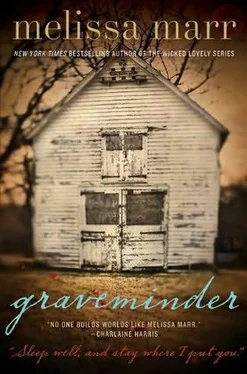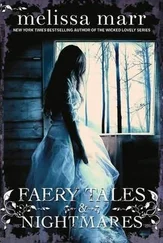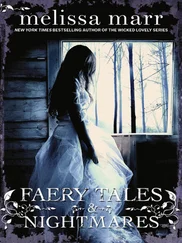Except bad water doesn’t result in torn-up bodies.
Upstairs, everything looked perfectly in order. Even the beds were made. In the bathroom that Ella and Rebekkah once shared, someone had set out a hand towel, bath towel, washcloth, and one of those little seashell-shaped soaps. It looked homey.
The guest bedroom that was once Rebekkah’s room had a quilt folded at the foot of the bed, and Maylene’s bed had fresh linens on the night table as if whoever tidied up wasn’t sure if changing the linens was a good idea or not. Byron wasn’t sure either. His father had kept his mother’s things out for months, even going so far as to spray her perfume in the air every so often. The shadow of her presence had lingered long after she was gone.
For a moment he considered sitting down, but he couldn’t bring himself to do so. It was one thing to come into Rebekkah’s home to look for something, some clue, some anything to answer the questions he knew she’d have. It was another altogether to make himself at home.
He paused in the doorway, remembering the first time Rebekkah had dealt with the death of a loved one.
Rebekkah sat on the edge of her bed. Her face was wet with tears, and her sobs were the gulping-gasping kind. He’d seen grief before; sobbing people were normal in a funeral home. Those people weren’t Rebekkah, though; seeing her in pain was different.
Byron went over and pulled her into his arms.
“She’s gone,” Rebekkah said against his chest. “Dead, B. She’s dead.”
“I know.” He could see Maylene watching them from the hallway. She didn’t come in; instead, she nodded at him approvingly.
Rebekkah clutched his shirt in her hands, holding him to her, so he kept his arms around her until her cries faded to sniffles.
“Why?” She lifted her face and looked up at him. “Why is she dead?”
But he didn’t have any more answers than she did. Ella had been acting strange the past few days. Without warning, she’d broken up with him in the morning. They’d never fought, never argued, and until that week, he’d thought she was happy.
What happened?
He’d hardly thought about anything else since she’d told him she was done with him. She hadn’t been angry, just sad. He didn’t tell Rebekkah any of that, not yet. In the span of a few days, he’d gone from having a girlfriend and a good friend, to being afraid he’d lose both of them because he and Rebekkah had kissed, to holding Rebekkah as they both tried to make sense of Ella’s death.
Was it our fault?
“Don’t leave me. Promise.” Rebekkah pushed away from him, but kept her hand fisted in his shirt as she stared at him. “She left us, and now ... She could’ve told us what was wrong. She could’ve told me anything. Why didn’t she tell me?”
“I don’t know, Bek.”
“Promise me, Byron.” Rebekkah wiped her cheeks angrily. “Promise you won’t keep secrets or leave or—”
“I promise.” He felt a guilty twinge at how right it felt to make that promise to Rebekkah. Her sister, his girlfriend , was dead. Byron shouldn’t think of Rebekkah as anything but a friend—except that he had been thinking of her like that long before Ella had died.
And Ella had known.
“I promise,” he repeated. “No secrets, no leaving you. Ever.”
It was Rebekkah who had left, not quite a year later. She’d left Claysville and left him.
“How do I tell her you were killed , Maylene?” he asked the empty room.
He opened the doors to the other rooms. The third bedroom, Ella’s old room, wasn’t made up. The bed sat in an anonymous room that was overfilled with clutter. Maylene hadn’t built a shrine to her dead granddaughter—nor had she done so with her dead son. The room that had been Jimmy’s was a storage room now. In it, there were more boxes and plenty of clutter, but no bed at all. Both Ella’s room and Jimmy’s room looked untouched by the murderer and by the townsfolk who’d cleaned the house.
Byron went downstairs and grabbed the bottle of water. He let himself out, checked that the door was locked behind him—and then stopped.
A teenage girl sat astride his bike, kicking her foot back and forth.
“Hey!”
She cocked her head. “Yeah?”
“Off my bike.” He leaped off the porch and crossed the lawn, but when he reached her, he hesitated. Grabbing hold of a girl—regardless of the reason—wasn’t something to do lightly.
She hopped up so her feet were tucked under her and then sprang backward, putting the bike between them. For a moment she stared at him. Her forehead furrowed in apparent confusion. “She’s dead. The woman that lives here.”
“Do you know her?” Byron tried to place the girl, but he’d been back in Claysville only a few months, and he didn’t recall seeing her anywhere. She didn’t look like anyone he knew either, so he couldn’t peg her as someone’s daughter or sister.
“They stopped bringing her milk.” The girl’s expression turned wistful as she stared past him to the porch. “Yesterday there was milk, and today there’s not. I’m hungry.”
“I see.” Byron took in her frayed jeans and dirty face. There weren’t any homeless shelters in Claysville . He wasn’t sure if there was even a foster-care system. Relatives took in those that needed taking in, and neighbors handed over whatever extra they had to the folks who lacked.
He opened his jacket and pulled out his phone. “Do you have a home? Relatives here in town? I can call someone to come for you.”
“No, I’m not going anywhere. Not now,” she whispered.
The skin at the back of Byron’s neck prickled, but when he lifted his gaze from his phone to look at her, she was already gone.
CHRISTOPHER HAD DRIVEN FROM MAYLENE’S HOUSE DIRECTLY TO RABBI Wolffe’s. The young rabbi was on the duty roster this week.
From what Christopher had read in books and seen on the television, he knew that Claysville was peculiar in the way they ran things. Their mayor was joined in his governance by a joint secular and spiritual town council; any resigning council members picked their own replacements—as did the mayor. Between the town proper and the outskirts there were fewer than four thousand living citizens, but under the leadership of Mayor Whittaker and the council, Claysville had next to no serious crime. Hardly anyone moved away, and those few who did always came back. It was a safe, predictable town, and to assure that it stayed that way, the town leaders had policies in place for anomalies. The sheriff had only to follow protocol.
“I hate this part.” Christopher cut off his engine, but he stayed in the car for an extra minute. The rabbi was relatively new to town, so he tended to forget that there were topics that most of the town couldn’t discuss. He, and the rest of the council, never got the headaches that everyone not on the councils got when forbidden subjects were broached.
The door to the well-kept Craftsman house opened, and the rabbi stepped out onto the wide front porch. He’d obviously been working: a pencil was tucked behind his ear, and his shirtsleeves were rolled back. For the rabbi, book work was as distracting as the carpentry projects he had started up in town: both sorts of activities required folding up his sleeves.
Christopher got out of the car and closed the door.
“Everything in order, Sheriff?” Rabbi Wolffe called. The question wasn’t said in any alarming way, but they both knew Christopher wouldn’t be stopping by if things were in order.
Читать дальше
Конец ознакомительного отрывка
Купить книгу












